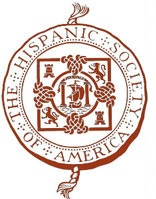
N.Y./Region
City Room
Back to front page »
January 16, 2008, 5:55 pm
Congestion Pricing and Disparities in Commuting
By Sewell Chan
 Supporters and opponents of congestion pricing converged on the auditorium of Hunter College this afternoon for a citywide public hearing on the interim report of the New York City Traffic Congestion Mitigation Commission, the state panel charged with weighing Mayor Michael R. Bloomberg’s proposal to charge fees for driving in Manhattan against alternatives, like imposing tolls on the East River bridges.
Supporters and opponents of congestion pricing converged on the auditorium of Hunter College this afternoon for a citywide public hearing on the interim report of the New York City Traffic Congestion Mitigation Commission, the state panel charged with weighing Mayor Michael R. Bloomberg’s proposal to charge fees for driving in Manhattan against alternatives, like imposing tolls on the East River bridges.Many groups have turned up to weigh in, yet again, on the proposed $8-a-day traffic charge, but two developments today seemed noteworthy.
First, the city’s transit workers’ union endorsed the congestion pricing proposal today. Roger Toussaint, the president of Local 100 of the Transport Workers Union, held a news conference outside the Hunter College union at which he declared the union’s unequivocal support for the mayor’s proposal. This was politically notable, because the union famously clashed with the mayor during its three-day subway and bus strike in December 2005. (But of course, traffic fees would probably have the effect of promoting more use of mass transit, which in turn could lead to greater investment in the M.T.A. — and more employment of union members.)
Second, a new coalition of pro-congestion pricing groups, calling itself Communities United for Transportation Equity, presented research suggesting that black and Hispanic riders and low-income riders have the longest commutes of any residents of the New York region.
Of the 750,000 New Yorkers who travel more than an hour each way, two-thirds make less than $35,000 a year and only 6 percent make more than $75,000 a year, the group noted, citing an analysis by the Pratt Center for Community Development of census data.
The group also presented data suggesting that black and Hispanic riders are disproportionately represented among those with long commutes. Blacks made 28 percent of New York commuters with one-way commutes longer than 50 minutes but only 16 percent of commuters with one-way commutes shorter than a half hour. Whites made up about half of those with the short commutes and about a third of those with long ones.
“There is a significant racial and economic divide between those straphangers with the most horrendous commutes and those with the easiest,” the group, which uses the acronym Commute, said in a statement.
“The mass-transit system is failing those of us who need it the most, while truck and car-related infrastructure running through our neighborhoods wreaks havoc on our health. Having a long commute takes away time from families and communities, and poor transit access means poor job access because you can’t take a job that you can’t get to,” said Silvett García, an official at Youth Ministries for Peace and Justice, a nonprofit group in the Soundview section of the Bronx.
The group called not only for congestion pricing as a way to finance mass transit and reduce traffic, but also for the city to hasten its plans to start a bus rapid transit program. Bus rapid transit, or B.R.T., is a catch-all term for innovations like bus designated lanes, special traffic signals that are programmed to prioritize buses, and bus stops that are few in number and spread out across high-volume stations where passengers pay their fares before getting on board.
“A congestion pricing plan increases investment while reducing pollution, and B.R.T. is the fair, fast and necessary way to reach the transit dependent — those who live or work in the gaps of the subway system and who cannot afford a car, cab or premium commuting fare, the elderly, and the handicapped,” aid Cynthia Doty, organizer for the West Harlem/Morningside Heights Sanitation Coalition, another community organization. “As the congestion pricing debate moves from the commission to the city and state legislatures, we should focus on the half million working-class New Yorkers with treacherous commutes.”
Of course, opponents of congestion pricing are unlikely to be assuaged by the supporters’ arguments. Take this statement last week by Walter McCaffrey, a former city councilman who is one of the leading foes trying to defeat the traffic fees. “Public support for this flawed plan continues to be very weak, and it is time to accept the public’s concerns and move on to cost-efficient, fair and practical alternatives that will help solve the real problems of traffic congestion without putting a toll on bridges or people’s wallets,” Mr. McCaffrey said. “We urge the commission to put forward only those traffic plans that do not create onerous and costly burdens on our city and its residents.”
The 17-member commission is expected to deliver its final recommendations by the spring. But the ultimate decision rests in the hands of the State Legislature, which so far has been lukewarm about the mayor’s proposal, despite the promise of $354 million in federal grants to implement congestion pricing.
http://cityroom.blogs.nytimes.com/2008/01/16/congestion-pricing-and-disparities-in-commuting/








+(3).jpg)



.jpg)
+(3).jpg)


No comments:
Post a Comment